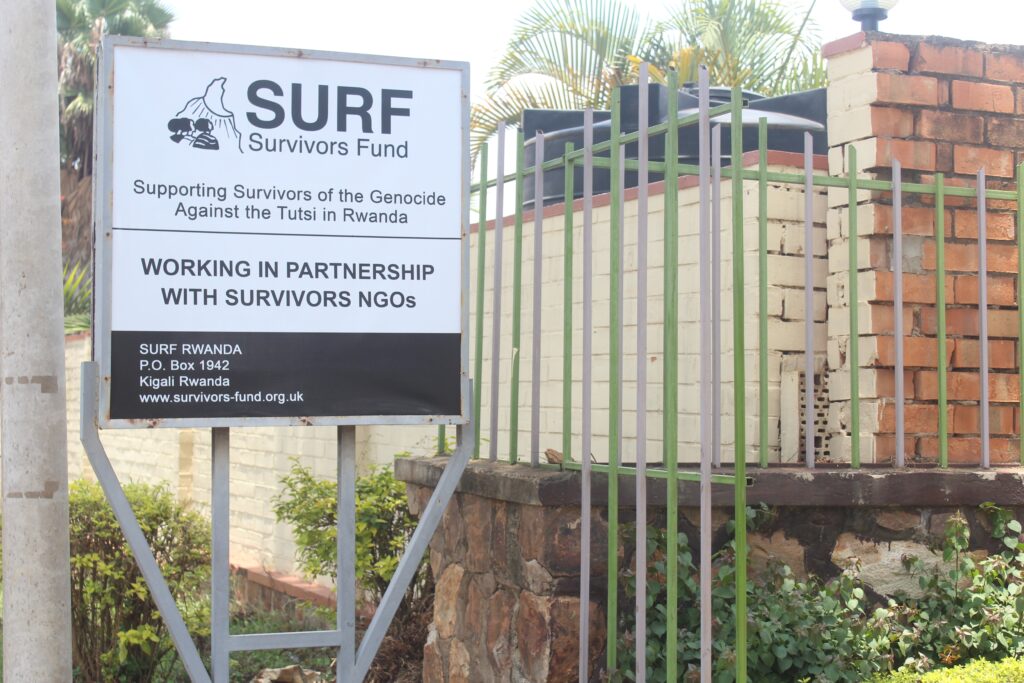
This is one of a series of extracts of questions and answers from An interview with Samuel Munderere and David Russell of Survivors Fund (SURF) on reparative justice for survivors of the 1994 Genocide against the Tutsi in Rwanda published in a Special Issue of Peace Review, a journal of social justice, to mark the 30th Anniversary of the Genocide against the Tutsi in Rwanda.
Could you describe two or three SURF past programs advancing reparative justice that have been successful, how and why? Who were the partners in funding and implementation and can they be scaled up? Can you similarly describe current/ongoing programs?
One successful recent past programme of Survivors Fund (SURF) advancing reparative justice has been the Empowering Vulnerable Genocide Widows in Western Rwanda to Alleviate Extreme Poverty (EVWEP) initially funded in 2019 from UK Aid Direct, the challenge fund of the UK Department for International Development (DFID), and in more recent years extended through support from the Addax & Oryx Foundation and Southall Trust.
The project is a partnership between Survivors Fund (SURF) and AVEGA Agahozo (National Association of Genocide Widows) providing holistic support to widowed survivors of the genocide against the Tutsi in Rwanda and their dependents in the two districts of the Western Province, namely Rusizi and Nyamasheke. The project was independently assessed and scored an A+ with the evaluation noting:
“The grant holder has demonstrated progress in key outcomes for 1,050 vulnerable genocide widows and their households, including improved food security and consumption, increased disposable household income, access to counselling and mental health support services, and more environmentally-friendly alternatives for cooking.
“Of further note was the successful approach to train community volunteers as key project implementors for the project. SURF successfully considered the risks around this and has been able to demonstrate how this approach has led to greater community buy-in as well as stronger sustainability for the project. The grant holder also provided some useful learnings and future adaptations for implementation, especially around setting up IGA with loans from banks. A key point of consideration for the project team for the implementation going forward is to reflect on how to support those whose businesses are still not profitable and are therefore in debt to the bank.”
A current programme which is ongoing is that of the Youth Economic Empowerment Project (YEEP) which is in its third year made possible through funding from the Clifford Chance Cornerstone Initiative. It is a partnership between SURF and AERG (National Student’s Association of Genocide Survivors) and GAERG (National Survivor’s Association of Graduate Students) to deliver entrepreneurship, work readiness and vocational training, and access to finance and learning resources, to empower vulnerable youth – specifically young survivors which dropped out of school and marginalised second-generation survivors – and enable them to develop secure livelihoods and sustainable incomes. In so doing, this is alleviating their poverty and improve their well-being and enable them to better independently support themselves and their households.
The programme is progressing well with over 6,000 young people having built skills, over half of which have completed our entrepreneurship training course and 300 having graduated from vocational training school. The participants are now setting up their own small businesses with start-up capital that they are able to access from a Loan Guarantee Fund which is being managed by Goshen Finance – not only generating income for themselves, but also for others that they are employing as their ventures scale.
Both models have the potential to be scaled up with further funding.
